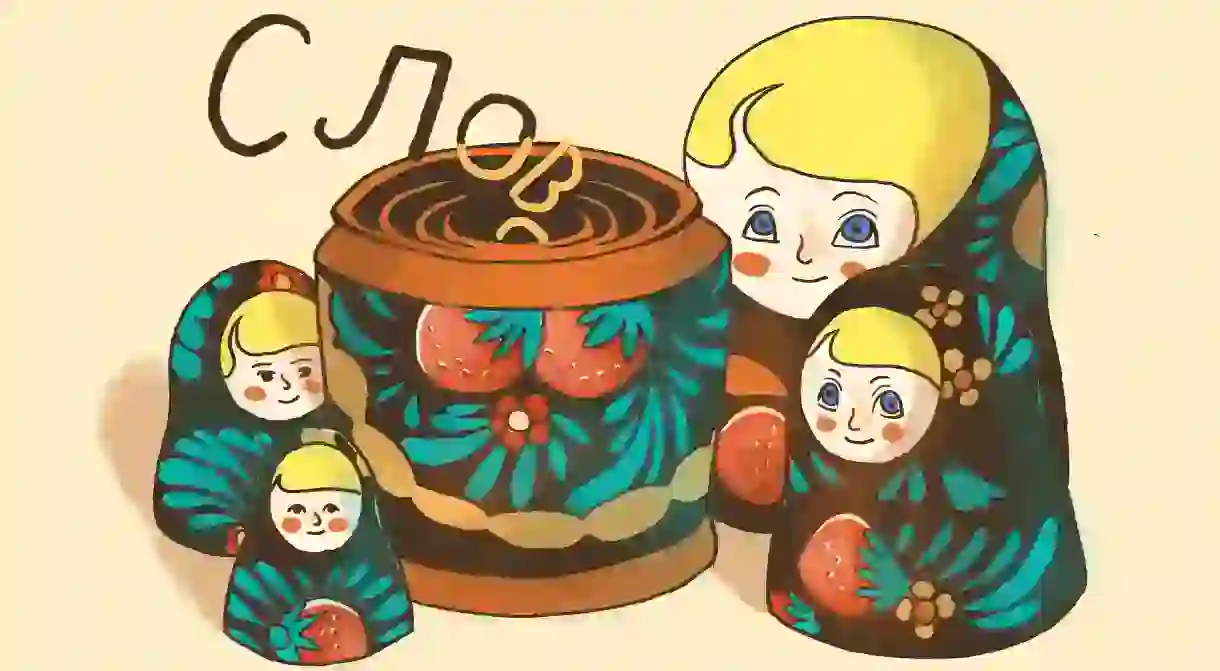A Guide to Cautionary Russian Proverbs and What They Mean

The Russian soul is said to be unknowable and unfathomable, but proverbs – cautionary tales hewn from painful experiences – offer a window into the beguiling world that outsiders are often told they cannot understand. Here are Culture Trip’s top nine favourite proverbs and the meanings behind them.
Russians frequently evoke the notion of an unknowable Russian soul. How could outsiders possibly understand their world, their woes, their penchant for pickling everything? Winston Churchill was certainly convinced of its mysticism, and it’s easy to see why: Russians are romantic yet dark, optimists yet realists, believe in destiny yet plan just in case. But dig into the treasure trove of cautionary Russian proverbs and a chink of light shines through somewhere among the riddle, mystery and enigma.
Trust but verify
Доверяй, но проверяй / Doveryái, no proveryái
This rhyming proverb is Russia 101: be aware of the official party line, but know things will likely not add up. Take someone at their word, but check – just in case. It was popularised by US President Ronald Reagan, who called upon it several times in Cold War nuclear disarmament talks with the Soviet Union, reassured it could win the Kremlin’s affection.

A word isn’t a sparrow: once it’s flown, you can’t catch it
Cлово – не воробей, вылетит – не поймаешь / Slóvo – ne vorobyéi, výletit – nye poimáyesh
Often shortened to just the first part, this expression is the conversational counterpart to the famous “Не болтай!” (Don’t talk!) Soviet propaganda poster. In the USSR, it could be used to caution against making ill-advised quips about the politburo or divulging too much information, even to a seemingly friendly ear. These days, however, it simply warns: once uttered aloud, something can’t be unsaid. Think twice before you blurt it out.
Don’t dig someone else a hole, you’ll fall in it yourself
Не рой яму другому, сам в неё попадёшь / Nye roy yámu drugómu, sam v nyeyó popadyósh
This one doesn’t require much explanation. Planning to get your own back on someone for pinching your idea, report someone for stealing your Wi-Fi or exact revenge on your ex? Be warned: your actions could backfire on you.
Don’t put in the work, and you won’t pull a fish from the pond
Без труда не вытащишь и рыбку из пруда / Bez trudá nye výtashchish i rýbku iz prudá
No pain, no gain. Not willing to put in the effort? No fish for you, comrade. And darting fish in ponds is apparently a more challenging undertaking than catching sparrows! Who knew?
Ready your sledge in summer and your cart in winter
Готовь сани летом, а телегу – зимой / Gotóv’ sáni létom, a telégu zimóy
The equivalent of “Repair your cart in December, in July your sledge remember”. No, doesn’t ring a bell here either. Despite their often fatalistic outlook on life, Russians are frequently urged to prepare, lest unforeseen situations catch you unaware and rob you of that one bite of the cherry. See also: “Measure it seven times, cut it once” and “Hurry too much, and you’ll end up a laughing stock.” You’ve been warned.
You don’t go to another monastery with your own rules
В чужой монастырь со своим уставом не ходят / V chuzhói monastýr so svoím ustávom nye khódyat
When in Moscow, do as the Muscovites do. Historically, new Orthodox monks would be expected to give up everything from their previous life and obey the rules of their new house. These days, this proverb is more likely to be heard coming from someone cautioning a new employee not to stray from the company rule book, or from a mother-in-law keen on making sure her child’s new partner doesn’t overstep the mark.

Be patient, the love will come
Стерпится, слюбится / Stérpitsya, slyúbitsya
This bittersweet expression comes from a time when young people were married off to someone they’d never met before and meant “marry first, love will follow” – just two words in Russian, but as powerful as any offering in a Russian’s proverbial arsenal. Today, it is, thankfully, used in less chilling settings. Bought some new jeans and still not quite sure about them? Fear not, they’ll grow on you.
Ran away from the wolf, straight into a bear
Бежал от волка, да на медведя попал / Bezhál ot volká, da na medvédya popál
Bears had to make an appearance at some point – indeed, bears and wolves have starring roles in Russian folklore. Although it can be used to mean “out of the frying pan and into the fire”, it is more often used to warn people about confronting smaller issues before they grow into true beasts. Indeed, you might meet a “grizzly” end. (Sorry.)
No champagne for those who don’t take a risk
Кто не рискует, тот не пьёт шампанского / Kto nye riskúyet, tot nye pyot shampánskogo
At the end of it all, rightly or wrongly, Russians are famous for leaving things to авось (avos’) – a fantastical wild hope that things will come out OK, in times when all other avenues seem hopeless. Fortune favours the brave, and their reward is a glass of sweet Russian bubbly.













